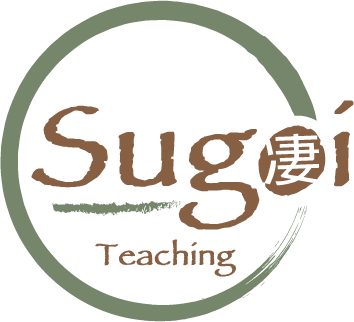As I have been browsing social media in recent days, it has become increasingly clear that many teachers are feeling stressed out and burned out. Granted there are significant factors playing into this including the threat and response to the Covid-19 pandemic, the current political situation, and the increased demands on our teaching practice. Despite these challenges, there are strategies and skills to address the burn-out cascade. Much of this information came from a presentation at the 2020 CEC Conference by Chris Knoles Ph.D., James Sinclair Ph.D., and David Lahna from Project Resilience at the University of Oregon.
Stress is primarily an imbalance between demands and resources. When we have way more on our plate than we are able to adequately address we begin to feel stress. Stress is not always a bad thing, because when it is controlled or managed well it can create innovation and efficiencies that help expand our abilities. Prolonged exposure to significant levels of stress can lead to burnout.
Burnout leads to many challenging issues. It can cause emotional exhaustion that may be manifested by fatigue, insomnia, impaired concentration, anxiety, or depression. Other impacts could be the lack of personal accomplishment characterized by loss of enjoyment, pessimism, excess sarcasm, isolation, or detachment. The last impact I’ll mention is depersonalization which may include apathy, irritability, and a lack of productivity.
While the previous factors may have origins in both cognitive and biological changes, they are not permanent and can be reversed. Some known protective factors include mindfulness, having a social support network, stress management, exercise, and meditation.
Mindfulness interventions have a significant effect on emotional exhaustion and personal accomplishment. As we think through our process and focus our mind on the immediate task we are able to control our stress levels for the moment. As a side benefit our productivity and the quality of our work significantly increases.
Relationships with colleagues and students play a significant factor in our state of mind and level of stress at work. It is critical that we build strong relationships in our school settings. We can do this by developing our interpersonal skills such as listening, finding things we have in common to discuss, and expressing genuine interest in others. It may also be helpful to develop relationships outside of your immediate circle Joining Twitter chats, community groups, church groups, or professional organizations can provide significant benefits.
Stress Management often focuses on breathing activities, mindfulness, and other cognitive aspects, which are all helpful. However, since stress is an imbalance in our workload and our ability to accomplish a meet the workload I feel that getting a handle on our organization and processes is critical in combating burnout. Having a time management system such as Getting Things Done, Panda Planner, or the Franklin Planner is very helpful. We should also look at all of our processes to determine if there is a more efficient or effective way to accomplish the task, or if the task is even necessary. Making our workload more manageable is a key step in avoiding burnout.
Exercise is an extremely powerful tool in managing stress. It can help in so many ways that it is almost a magic pill that fixes everything. It releases endorphins that improve our mood and fights off depression. It improves our health which makes us more productive. While we may not all be in a condition to run a marathon or even to run a block, we can find something to get started on to make regular exercise a part of our life.
Daily meditation or prayer gives us time to clear our thoughts, focus on the positive aspects of our lives, and helps us refocus on those things that are most important in our lives. As little as five minutes a day of meditation can have a significant impact on our stress levels.
Burn-out is real. With a little effort and small changes in our lives we can not only overcome it, but we can thrive in almost any situation. If you need help making small changes in your life, I could do a whole other post, yet the book Atomic Habits lays out the best method for making lasting change in our lives.
